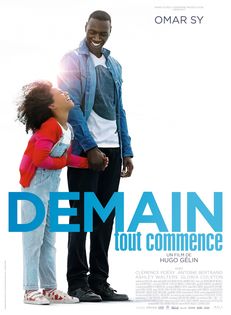Home
WATCH ALL CINEMA FOR STUDENTS INTERVIEWS
DIAMANTI, BY FERZAN OZPETEK

A year on from his "platform" film, Nuovo Olimpo [+], which was an impassioned homage to films released exclusively on Netflix, Ferzan Ozpetek is bringing his stories, characters and emotions back to the big screen with his new feature film, Diamanti [+], which is hitting over 400 Italian cinemas from 19 December, courtesy of Vision Distribution. A Christmas film with all the trimmings, it's a genuine crowd-pleaser, deploying a cast of successful actresses (18, in all) and set in its entirety in one of the most sparkly and colourful places imaginable: a prestigious dressmaker's shop for the film and theatre world in 1970s Rome.
As often happens with the Turkish-Italian director, there's also an autobiographical impetus behind this his 15th film. On this occasion, Ozpetek goes back to the early '80s when he worked as an assistant director and frequented film and theatre dressmakers, meeting the greatest costume designers, director and actors of the period, against a backdrop of mannequins, sewing machines and fabric scraps. That said, the film opens in the present-day: gathered around the usual, sumptuously decked table is a group of women whose faces we progressively recognise. They're famous actresses who have all starred in the director's previous films: Luisa Ranieri, Jasmine Trinca, Nicole Grimaudo, Paola Minaccioni, Elena Sofia Ricci, Lunetta Savino, Aurora Giovinazzo, Milena Vukotic, Carla Signoris, Anna Ferzetti and Loredana Cannata, in addition to new entries Vanessa Scalera, Geppi Cucciari, Milena Mancini, Sara Bosi and Mara Venier. They've been called together by Ozpetek himself, who's appearing in one of his films for the very first time, developing his next work alongside them...
READ MORE: Review: Diamanti - Cineuropa
Three Kilometres to the End of the World

Three Kilometres to the End of the World review - brutal self-denial in deepest Romania.
Cannes film festival
A drama of despair plays out in a remote village, as a debt-ridden father is mortified to discover his son is gay.
Here is a self-laceratingly painful tale of repression and denial in a remote Romanian village in the Danube delta, directed by Emanuel Parvu. It's in the gimlet-eyed observational and satirical style of the new Romanian cinema, a kind of movie-making that in extended dialogue scenes seeks out the bland bureaucratic language of the police and church authorities; their evasive mannerisms, their reactionary worldviews and lifelong habits of indicating opinions in quiet voices and in code, things they don't want to be held responsible for, and for things they want to keep enclosed in silence.
The drama concerns a careworn guy, Dragoi (Bogdan Dumitrache), who owes money to a local tough guy and is badly behind with the debt. Then he discovers that his 17-year-old son Adi (Ciprian Chiujdea), the apple of his eye - whom he is planning to send to military school next year, and whom he fondly imagines to be dating a local girl - has been badly beaten up by the money-lender's sons. With icy rage, Dragoi takes this to be the man's unforgivably violent way of demanding his money...
CIENTO VOLANDO, DOCUMENTARY BY ARANTXA AGUIRRE

Daybreak in summer. A young girl from San Sebastian makes her way to the Peine del Viento (Wind Comb). She remembers the old sculptor Eduardo Chillida, who had been coming here since he was a boy. Today his three sculptures anchored to the rocks, in permanent conversation with the sea and the wind, have become a distinguishing feature of his city and of the whole Basque coast. At dawn, the young Jone asks herself about the sculptor and promises herself that she will go and find him.
THE ROOM NEXT DOOR, DIRECTED BY PEDRO ALMODÓVAR

Tilda Swinton Gives a Monumental Performance as a Woman Confronting Death in Pedro Almodóvar's First English-Language Drama
Swinton plays a former war correspondent stricken with cancer, and Julianne Moore is the old friend who helps her enact a fateful choice.
Characters die in movies every day. Whether you're watching a violent thriller or a death-bed tearjerker like "Steel Magnolias" or some of the more macabre meditations of Ingmar Bergman, you might say that the movies, in some grand collective way, are nothing less than a rehearsal for death. Yet it's still rare to encounter a big-screen drama that grabs death by the horns, that looks it in the eye, that asks us to confront its daunting reality on every level the way Pedro Almodóvar's lyrical and moving "The Room Next Door" does.
The movie, in form, is quite simple. It's about two women, both in their early 60s, who've been friends for a long time but haven't seen each other in years: Ingrid (Julianne Moore), an art-world author based in New York City, and Martha (Tilda Swinton), a former globe-trotting war correspondent for the New York Times who Ingrid reconnects with when she learns that Martha is in the hospital fighting a battle with cancer. Her illness is serious: It's stage-three cervical cancer, and she's undergoing a highly experimental immunotherapy treatment, which is the only chance she has. (In other words, not much of one.) ...
By Owen Gleiberman
READ MORE:
'The Room Next Door' Review: Tilda Swinton in a Monumental Performance (variety.com)
THE MONK AND THE GUN, BY PAWO CHOYNING DORJI

Following up his Oscar-nominated debut film "Lunana: A Yak in the Classroom," Bhutanese filmmaker Pawo Choyning Dorji's "The Monk and the Gun" is a droll political satire set in the year 2006 as the Kingdom of Bhutan transitions towards becoming the world's youngest democracy. Lusciously lensed by cinematographer Jigme Tenzing, the ensemble comedy examines how the country's upcoming mock elections affect the titular monk, a rural family, an election official, and a desperate liason from the city, all of whose lives collide in minor and major ways.
After hearing about the upcoming mock elections on the radio, the elderly lama (Kelsang Choejey) of the rural village of Ura requests that his attendant Tashi (a wonderfully wry Tandin Wangchuck) bring him two guns before the full moon-also the day of the elections-to "set it right." What exactly he means by this ominous and vague statement is left unanswered until the film's charming denouement.
As Tashi makes his way on foot in search of guns, election official Tshering (Pema Zangmo Sherpa) arrives, observing as the rural population is taught how to vote. Fictional parties are set up: Blue representing freedom and equality, red representing industrial development, and yellow representing preservation. Although the villagers are told to vote for the party they think will "bring them the most happiness,"- democracy, Tshering insists is paramount for the country's Gross National Happiness-they are also instructed how to hold a rally. Villagers are arbitrarily split up and told to yell at each other. A lesson that presses an elderly villager to ask Tshering why they are being taught to be rude, "This isn't who we are," the old woman admonishes...
BY Marya E. Gates
READ MORE: The Monk and the Gun movie review (2024) | Roger Ebert
Tatami, by Zar Amir-Ebrahimi and Guy Nattiv

Tatami is the first feature film to be co-directed by Israeli director Guy Nattiv, who recently gave us the biographical movie Golda, and Iranian director and actress Zar Emir Ebrahimi, who was honoured with an acting prize in Cannes for her performance in Holy Spider. The present film - a political and decidedly feminist sports thriller which manages to hold the tension from the first image right on through to the last - sees Ebrahimi taking up position behind the cameras as well as playing the part of coach character Maryam. Whether it's a matter of fighting for the title of world judo champion or demanding respect as a free and independent woman, the protagonist of Tatami sacrifices her own body on the altar of the feminist cause.
Presented in a world premiere within Venice's Orizzonti section and more recently in Geneva's Black Movie Festival, Tatami is set during the judo world championships in Tbilisi, Georgia. Things are going surprisingly well for Iranian judoka Leila (an incredible Arienne Mandi), supported by her ever-faithful coach Maryam, but right in the middle of the competition the Iranian Judo Federation, and then the Islamic Republic, order her - using decidedly unlawful means - to withdraw from the competition to prevent her from coming face to face with the Israeli opponent whom they're terrified she'll lose against. Her family is in danger, but Tatami's protagonist isn't easily intimidated: she's determined to assert the universal rights that should be guaranteed for everyone, regardless of gender or sexual orientation...
BY Muriel Del Don
READ MORE: Review: Tatami - Cineuropa















